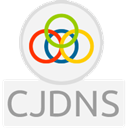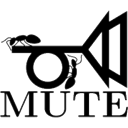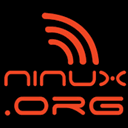Top Digitata Alternatives for Open-Source Ad Hoc Routing
Digitata is an open-source ad hoc routing network that welcomes membership and contribution by others, providing a flexible framework for decentralized connectivity. However, depending on your specific needs for platform compatibility, feature sets, or community focus, you might be looking for a Digitata alternative. This article explores some of the best options available today.
Top Digitata Alternatives
If you're seeking robust, open-source solutions for mesh networking, peer-to-peer communication, or decentralized network infrastructure, these alternatives offer compelling features similar to or expanding upon what Digitata provides.

GNUnet
GNUnet is a powerful framework for secure peer-to-peer networking that stands out as an excellent Digitata alternative. It's completely free and open-source, available across Mac, Windows, Linux, and BSD. Key features include decentralization, distributed architecture, mesh networking, and peer-to-peer capabilities, making it ideal for those prioritizing security and independence from centralized services.

cjdns
Cjdns is a networking protocol and reference implementation focused on easy setup and scalable protocols, presenting a strong Digitata alternative. This free and open-source solution supports Mac, Linux, and BSD, offering robust decentralized, distributed, and mesh networking features essential for modern peer-to-peer communication.

LibreMesh
LibreMesh extends OpenWrt to create self-configuring wireless and wired mesh networks, making it a highly relevant Digitata alternative for those working with routers. It's free and based on Linux, OpenWrt, and LEDE, providing decentralized, distributed, and networking capabilities through its ad-hoc Wi-Fi use.

telehash
Telehash is an embeddable private network stack for devices, offering a lightweight and flexible Digitata alternative. This free and open-source solution is available on Mac, Windows, Linux, and JavaScript platforms, focusing on providing a core networking layer without specific advertised features, ideal for developers looking for a foundational component.

MUTE
MUTE File Sharing is a peer-to-peer network known for its search-and-download functionality combined with privacy protection, serving as a Digitata alternative with a focus on file sharing. It's free and open-source, supporting Mac, Windows, and Linux users who need secure and private file exchange.

Babel (protocol)
Babel is a loop-avoiding distance-vector routing protocol for IPv6 and IPv4, known for its fast convergence, making it a robust Digitata alternative for specific routing needs. This free and open-source protocol is available across Mac, Windows, and Linux, and offers anonymity features for enhanced privacy.

ninux
Ninux is a wireless network community dedicated to creating and expanding a free, open, and experimental computer network, offering a community-driven Digitata alternative. It's free and open-source, primarily Linux-based, and features anonymity, censorship circumvention, and mesh networking, aligning with the spirit of collaborative network building.

Qaul
Qaul is an ad-hoc wireless mesh-network suite that harnesses everyday devices to create a democratic, non-centralized mesh network, making it a compelling Digitata alternative. It's free and open-source, built with C++ and available on Mac, Windows, and Linux, emphasizing decentralized connectivity.

OLSR (Optimized Link State Routing)
OLSR (Optimized Link State Routing) is a Link State Routing Protocol (LSRP) implementation optimized for Mobile Ad Hoc Networks, providing a robust Digitata alternative for mobile device routing. It's free and open-source, available on Mac, Windows, Linux, Chrome OS, and Apple TV, offering anonymity and mesh networking features for wireless environments.
Whether you prioritize advanced security, specific platform support, or community-driven development, exploring these Digitata alternatives will help you find the best fit for your ad hoc routing and decentralized networking requirements. Each offers unique strengths that can enhance your network's capabilities.